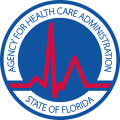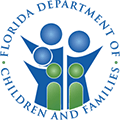What is Opiate Abuse
Understanding Opiate Abuse
Opiates are a class of narcotic drugs that are derived from opium or created in a laboratory. These central nervous system depressants are distributed in prescription form as morphine and codeine and are also found on the streets in the form of heroin. These drugs vary in the degree of how powerful the narcotic element is.
Many opiates are available through prescription from a licensed physician for the prevention of pain, to help with sleep problems, and to alleviate diarrhea. When used directly as prescribed, these drugs can be very effective painkillers, however due to the positive psychoactive aspects, opiates are commonly abused. Even if prescribed by a licensed physician, the potential for abuse and addiction is extremely high. Some individuals become addicted to the feelings of well-being and emotional numbing that these narcotics produce.
An opiate addiction is defined as an out-of-control need and craving that affects social relationships and daily obligations, such as work or school. Individuals who are addicted to opiates may crush up and snort the pills, mix them with other drugs and alcohol, or dilute the crushed tablets in water and inject them intravenously. Repeated use can lead to opiate dependence within four to six weeks, while psychological addiction can occur in as little as two weeks. Prolonged opiate abuse may lead to dependence upon opiates and the body will become unable to naturally produce opiates in response to painful stimuli. This means that when an individual stops using opiates, it will lead to an increased amount of pain, which is why many abusers relapse.
Statistics
Statistics of Opiate Abuse
It is estimated that in the United States there is a prevalence rate of opiate use at about 0.37% in adults ages 18 and older. Gender differences have been shown with male prevalence rates around 0.49%, while women have a prevalence rate of only 0.26%. The highest rates of abuse are found in individuals under the age of 30 with a prevalence rate of about 0.29%, and the lowest rates are found in those 64 years of age and older (0.09%).
Causes of Opiate Abuse
What are the Causes of Opiate Abuse
Genetic: When an individual has a first-degree relative who has struggled with an addiction, they are more likely to develop an addiction themselves. Temperamental qualities, like novelty seeking and impulsivity, are considered to be inborn characteristics and have been linked to an increased risk for opiate addiction.
Physical: Individuals who are suffering with chronic health conditions or go through specific surgeries are given opiates as a means of numbing the pain. Sometimes, prolonged use of these substances causes an individual to become addicted to these substances. Additionally, opiate use alters pathways in the brain and over time leads to addiction.
Environmental: There are some men and women who are exposed to certain environmental factors which put them at a greater risk for substance use and addiction. Environmental factors such as abuse, lower socioeconomic status, having peers who do drugs, living in violent neighborhoods, or experiencing a traumatic event can all lead to the development of substance abuse and addiction. Additionally, some individuals have difficulty coping with negative moods states and they have learned that using a substance such as opiates is an appropriate means for controlling their emotions.
Risk factors:
- Under the age of 30
- History of mental disease
- Being male
- Improper use of medication
- History of repeated drug or alcohol abuse and rehabilitation
- Experiencing chronic pain due to illness or other cause
Signs and Symptoms of Opiate Abuse
Learn More About the Signs and Symptoms of Opiate Abuse
Behavioral Symptoms:
- Excessive sleeping
- Wearing long sleeves and pants even in summer to hide track marks
- Borrowing money without explanation
- Abandonment of important activities
- Increased energy
- Decrease in personal hygiene
- No longer engaging in activities once enjoyed
Physical Symptoms:
- Increased heart rate
- High blood pressure
- Decreased appetite
- Constricted blood vessels
- Drastic weight changes
Cognitive Symptoms:
- Lowered motivation
- Psychosis
- Increased sensitivity to sensory stimuli
- Improved alertness
- Over arousal and hyper-vigilance
Psychosocial Symptoms:
- Anxiety
- Euphoria
- Depression
- Irritability
- Improved self-esteem
Effects of Opiate Abuse
Understanding the Effects of Opiate Abuse
The long-term effects of constant opiate abuse can cause havoc in all areas of an addict’s life. The side effects experienced will depend on individual circumstances, but some of the common effects include:
- Problems maintaining close personal friendships
- Strained family relationships
- Trouble keeping a job or keeping up with school responsibilities
- Drug related crimes and incarceration
- Adverse health consequences (lung, liver, and kidney damage, infections in the heart, collapsed veins)
- Financial problems
Effects of Withdrawal and Overdose
Learn More About the Effects of Withdrawal and Overdose
Withdrawal: Opiate withdrawal sets in shortly after an individual who has become physically dependent on this drug abruptly stops using. Symptoms usually occur within twelve hours after the last use. Some withdrawal symptoms may include:
- Agitation
- Sweating
- Anxiety
- Muscle aches
- Insomnia
- Abdominal cramping diarrhea
- Nausea and vomiting
Overdose: It may be difficult to tell if someone who has taken opiates is simply high or is experiencing an overdose. If you are concerned and having a hard time telling the difference, the best thing to do it to treat the situation like an overdose and get help immediately. Some common signs associated with an overdose include:
- Awake, but unable to talk
- Loss of consciousness
- Vomiting
- Limp body
- Breathing is slowed, erratic, or has stopped
- Unresponsive to stimuli
- Slow, erratic, or missing pulse
- Pale and clammy face
Co-Occurring Disorders
Treatment for Co-Occurring Disorders
There are a variety of different mental health disorders that co-occur with opiate abuse and addiction. Some of the more common co-occurring disorders include:
- Other substance abuse
- Alcohol abuse
- Antisocial personality disorder
- Depressive disorder
- Anxiety
- Post-traumatic stress disorder











